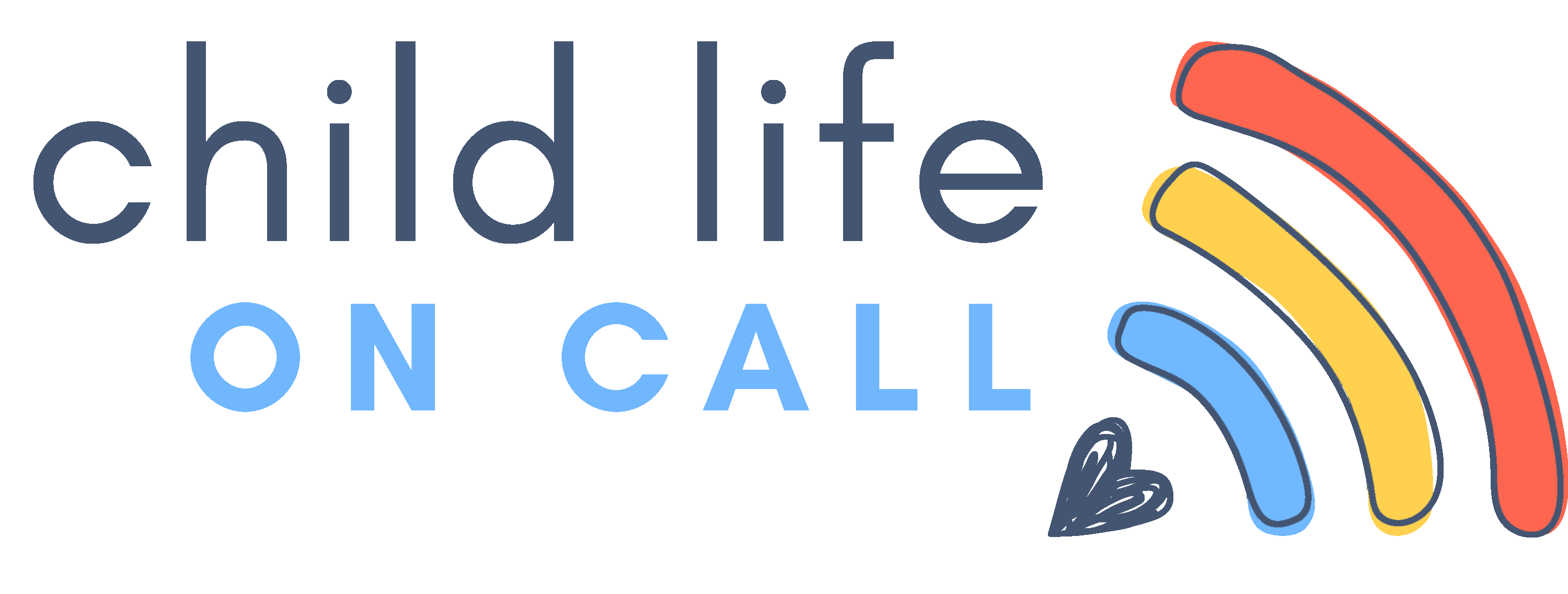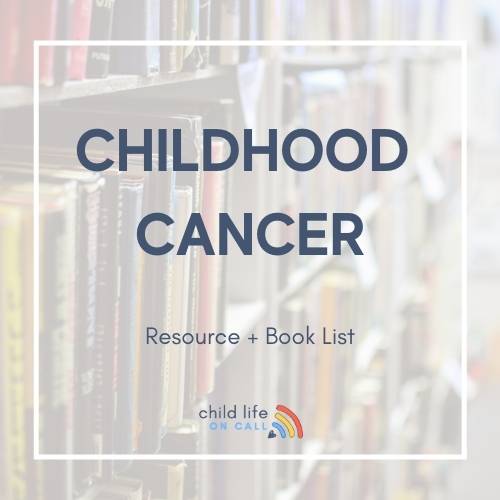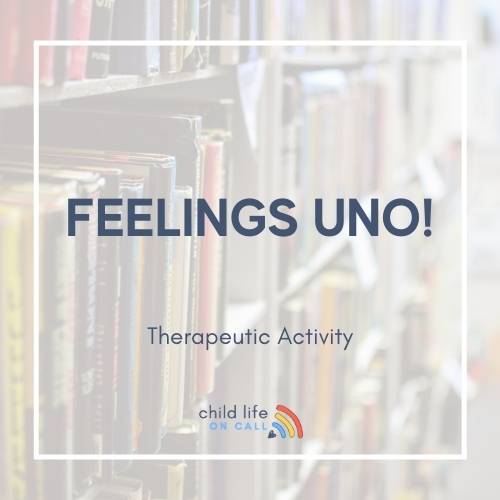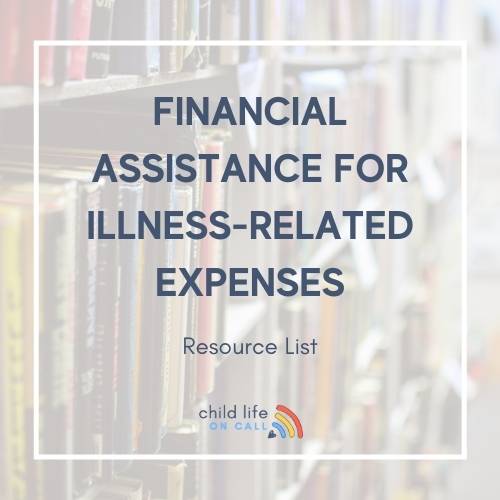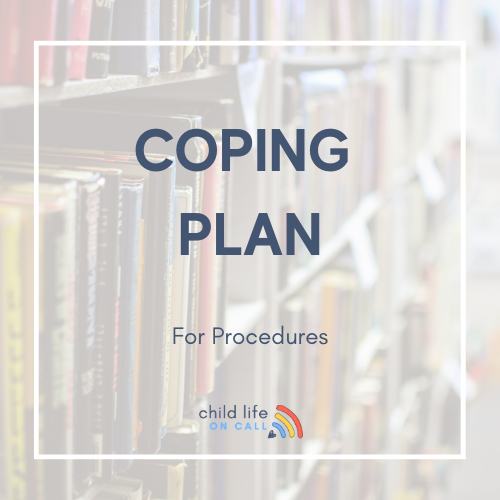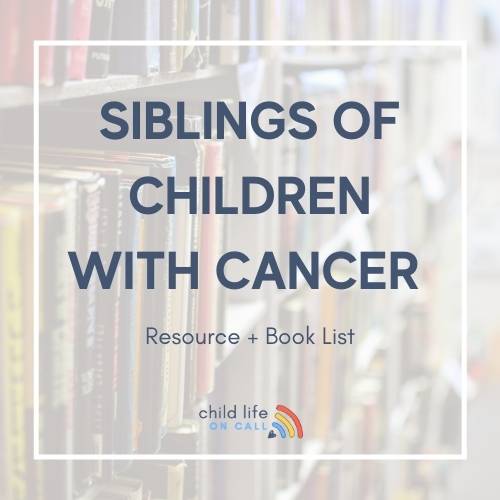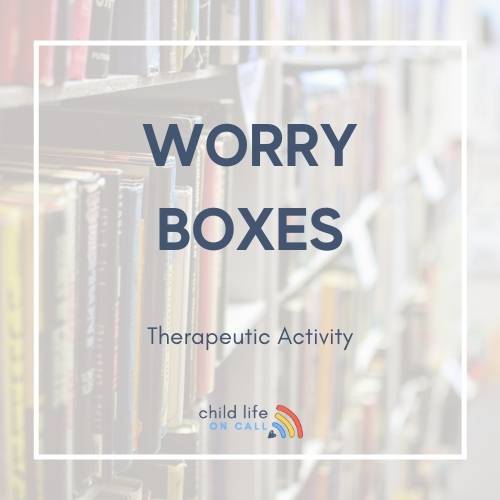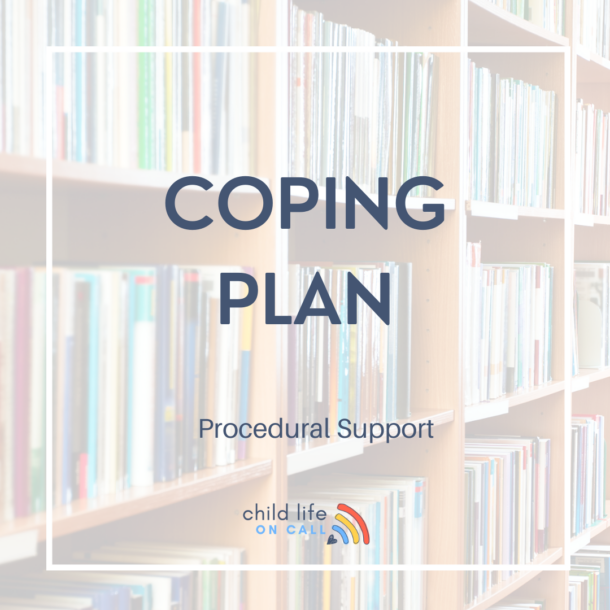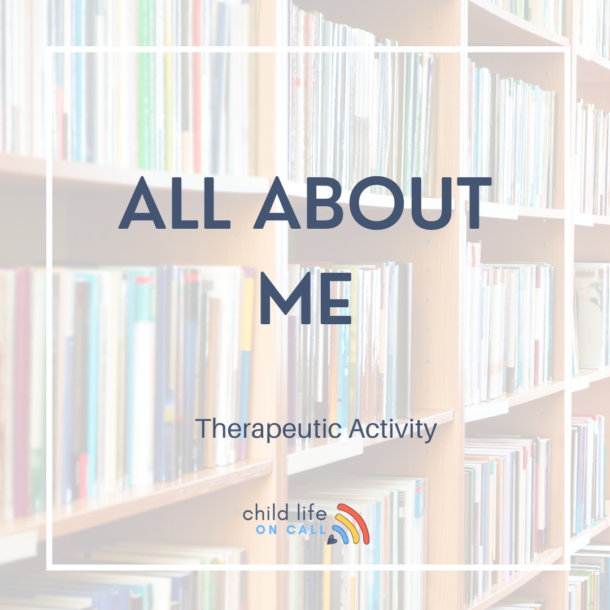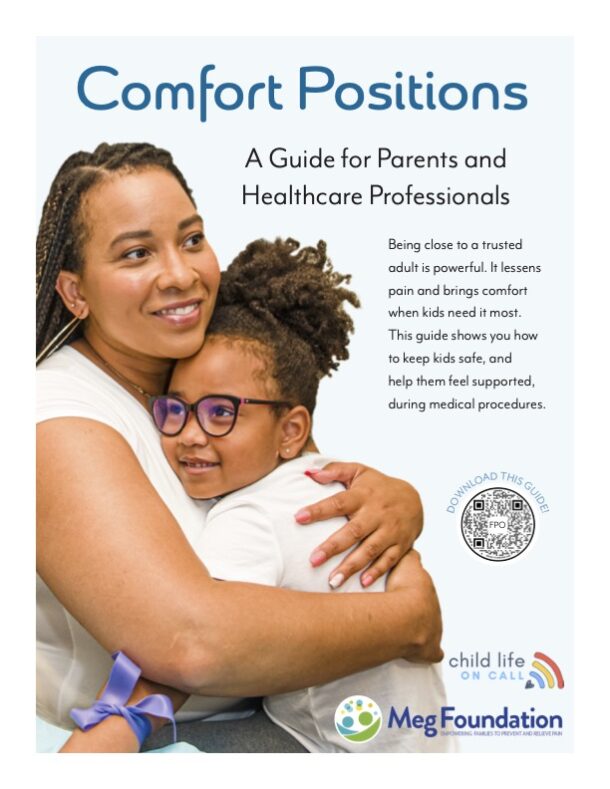The first sign of sniffles, or worse, shouldn’t send you into a tailspin. Feel confident in your role as a parent and advocate, no matter what medical situation you’re facing.
See a full transcript of Episode 197: James Robinson's Story below.
00:00:00 You’re listening to episode 197, James’s story, a son with a congenital heart defect. 00:00:10 Hello my friends. Welcome to Child Life On Call Life On Call on Call. This podcast is a safe place for parents to share their stories about what it’s like to have a Child Life On Call that has a medical experience, diagnosis, disease and or everything in between. We know there is power in sharing stories, and that power multiplies when you can listen to other parents who have walked a similar path to yours. Giving and getting advice is great, but hearing how another parent navigates the complexities and nuances of healthcare is even better. 00:00:40 As a Child Life On Call Life On Call specialist, my role is to support, validate, and provide emotionally safe spaces for kids and their families, and I am so honored to be on this journey with you. In addition to parent stories, we sprinkle in some expert episodes every now and again that have content for both parents and professionals in the field of healthcare, all with the mission to empower parents to be confident advocates and partners with the care team during healthcare experiences. We’re so glad you’re here. Hello my friends. I am so glad that you’re here today. 00:01:11 I don’t know if you are joining in us from your car or on a walk or you are watching this on YouTube, but if you’re watching this, then you will see I am holding a little envelope of oregano seeds, and that is not going to make a lot of sense to you right now before you listen to this episode, but by the end, it will make complete sense. Today I have the complete honor of sharing my conversation with James Robinson, who is the author of a new book called More Than a memoir about his relationship with his family, his self, and the ultimate passing of his son. And so I do want to preface this introduction today with, this is not a story that is filled with despair. This is a story that is filled with hope. And I have learned so much from James in my conversations with him and have already ordered his new book immediately after we talked and had this conversation today. 00:02:07 But if you are not in a place that you are wanting to hear about his son passing away, then I totally get it. Come back when you’re ready and when you are in a place to hear it, because his story is one of so much love and the true circumstances that can lead to your whole life changing forever. And anyway, we’re going to get into it, and so I’m going to stop talking now so we can just get into this. But James, I can’t thank you enough for coming onto this podcast. You are not only an advocate for your son and your family. 00:02:41 But you’re an advocate for the other healthcare professionals beyond the providers, the Child Life On Call Life On Call specialists. And that means so, so much to us as a Child Life On Call Life On Call specialist myself. So thank you. Thank you for sharing a little bit about your family. And I’m so grateful to you. 00:03:00 Let’s get started. 00:03:03 And you’ve never had your mother on the podcast. I’m sure I have. Oh, you have. She is a Child Life On Call abuse prevention advocate. Wow. 00:03:11 And so she has taught me a lot about the world of Child Life On Call abuse prevention. And so I had her on in April to come on and speak with us. Yeah. Now I’m going to start interviewing you. That’s not going to be a good podcast. 00:03:22 Oh, don’t worry, I’m professional. I’ll get it right back on you. Yeah. So introduce our listeners to you, a little bit about you, your family, where you live, and more about you. James. 00:03:32 Yeah. My name is James Robinson. I live in Brooklyn, New York, with my wife. We have three Child Life On Callren, one of whom, Gillard, was born 16 years ago. And four years later, we had twins, one of whom was born with a very serious congenital heart defect, something called single Ventricle Heterotaxi. 00:03:48 The twins names are Yaniv and Nadav. And Nadav is the boy who was born with the heart defect. It was quite devastating diagnosis. We knew in utero that he would need three surgeries by the age of four. There are three surgeries for his condition. 00:04:04 The first, a BT shunt, happens at five days. The second one, at Glen, happens around five months. And the fourth one, the Fontan, happens before four years olD. Around four years old. But when he was born, we really resolved to try to give him the best life he could. 00:04:20 And in fact, one of the reasons I’m very excited about being on this podcast is we learned a lot through our journey about what it means to live when you have a medical condition. To me, Child Life On Call Life On Call epitomizes that. We spent time in four hospitals throughout his life, and each one of them taught us something new about what it means to care for a Child Life On Call, both medically and holistically as parents. So I won’t bury the lead. Nadav died six years ago at the age of five. 00:04:48 It sounds like a very tragic story. It really isn’t. It was a privilege to be his father. I’ve spent most of the past six years writing a book about his life called More Than We Expected, which will be available in November. And one of the things I’m very excited about is talking about how you balance fatherhood or parenthood with medical care, and our journey was pretty remarkable. 00:05:15 He did have the BT shunt at five days. He did have the glen at five months. Throughout that time, we became very experienced. We had a crash course in cardiology. About to say, the way these are just rolling off your tongue is they’re ingrained in your memory, your brain. 00:05:31 Yeah. I apologize to your audience. Yeah, I mean, I take a lot for granted as we’re talking through it. No, please let me know. Anything needs to be explained. 00:05:40 Every parent goes through their own version of medical school at their most exhausted and tired state. So it’s very impressive to hear and feel free to continue talking that way. That’s welcome here. Yeah, we got really good at it. One of my secret talents is, I assume you know what an Ng Tube is. 00:05:56 A nasal gastric tube. My secret talent is being able to put an NG tube in a baby in the middle of the night in pitch dark without them waking up. That is a special skill, a skill. I never knew I had and unfortunately, is completely useless now, which is one of the sad things about losing a Child Life On Call who’s medically complicated. Suddenly these skills that you have become part of our identity, and it’s hard to let them go, feel quite useless in a lot of ways. 00:06:20 But really, the key to our story and where it sort of becomes terrifying and fascinating at once, is a decision we made right after his Fontaine, which was successful, to go to Australia, which is a country that I love, my wife loves. My mother is from Sydney. She spent four years in Australia. I have very fond memories as a Child Life On Call of visiting my grandparents there. And when Gillard was born, our first Child Life On Call, we brought him down to meet his great grandfather, which is a really mind blowing experience, because when you look at your kids and you think, well, someday I might meet their kids, that’s amazing enough, but someday I might meet their grandkids. 00:07:01 That’s completely mind blowing. Yeah. Especially when you have the teenager house, which is what we have now. Right. But we broke. 00:07:09 You live down. It’s that magnificent experience. And I had this opportunity to go to Australia because I was invited to speak at a professional conference, and they were going to fly me business class. And I said to them, could you turn those into economy tickets just offhand? And they said, sure. 00:07:22 So suddenly, we had the opportunity to fly to Australia, see my family, and introduce the twins to the country we loved for the price of a single ticket. And it was very hard to pass up. We talked to his doctors. It was quite a complicated decision, but the end, we decided it was okay to go. We’re worth going. 00:07:40 And it was wonderful. We got there. We spent a lot of time with our families, my family, and saw a lot of the wildlife there. But unfortunately, two days before we were due to return home, the dove was not looking well. And we sent a photo to his cardiologist in New York, and she said, you should go get him checked out. 00:07:58 And so we found ourselves in an unfamiliar part of Sydney at an unfamiliar hospital called the Child Life On Callren’s Hospital of Westmead. And he was quickly diagnosed with a clot in his Fontan circulation, which required emergency surgery. It lasted 10 hours. Wow. And it was pretty crazy. 00:08:18 We had to cancel our tickets. Our son Nadav, came out on ECMO, which is a heart lung machine. We found ourselves stranded in this weird place, not knowing what to do, grateful that he was alive, but he was in very bad condition and had to adjust to a new reality all of a sudden. 00:08:42 Yeah, pretty difficult. 00:08:46 So one of the things that we found while we were there is sort of the differences between how Australians practice medicine or this hospital practice medicine, and what we were to in the US, US were at Mount Sinai Hospital that are magnificent, wonderful, wonderful people, wonderful doctors. In fact, we came to learn that medical communication is much more than doctors, and it’s much more than nurses, wildlife specialists. You have therapists, you have technicians, you have whatever. And even the security guards in a hospital make a tremendous effect on your experience. Absolutely. 00:09:18 Such a good point. Yeah. And so in Australia, suddenly we’re in this unfamiliar environment for the first time, and we had to adjust. Right. And one of the things that made it easier were, I think, a couple of things that were unique to Australia, and I’m going to focus on the Child Life On Call Life On Call perspective for this podcast. 00:09:34 I mean, if you read the book, there’s a lot about everything in it, but I’ll just mention a few things that really stood out to us. The first one, and it was actually the night we were admitted or he was admitted, we were introduced to these things called Heart beads. And heart beads are just little beads. They give you a string when you’re first admitted with the patient’s name spelled out in beads. And then they have beads for everything that can happen in a hospital, whether it’s a procedure or a scan or a good day or a bad day or even a transplant or a discharge. 00:10:04 And every time one of those things happens, you get another bead to put on the string, and that becomes the story of one of the other. And we were shown the beads when we first arrived by the cardiac nurse, and they were incredibly beautiful. They were really lovely things. Yeah. We spent three months in Australia, and by the end, we had accumulated all these beads. 00:10:22 They were like treasures, and each one represented something that was really, really meaningful. And that was one of the things that really touched us. I imagine it reminds you that, and it reminds the staff, too. Like, this is not just a patient. This is a family. 00:10:37 This is a Child Life On Call who is going through all of these. Know, here in the US, it’s called Beads of Courage. There are different kind of programs here, but I love that they gave that to you on the first night. It really humanizes who Nadav is. Well, they gave them to his brothers, and the brothers really treasured them, and it sort of reduced the tension a little bit. 00:10:55 Now, suddenly, these beads to play with. I mean, we have seen beads in other US hospitals, but they’re not quite as beautiful. And there was something about the beauty of it that really made them special. They were like real works of art. Yeah. 00:11:07 The other thing that was different about Australia were the doctors in a lot of ways. I mean, Australians are different than Americans. I have both sides of my. Of. You can say that out loud. 00:11:18 I can say it out loud. I have a friend who’s an. You know, I feel like I can say some stuff, too. Okay, well, my dad’s a New Zealander. We’re not even going to go. 00:11:26 No, no. Different podcast. Kiwi. One of the interesting things in the US, we’re in cardiology awards in Australia. We were in the PICU. 00:11:38 The General Intensive Care Award are for basically Sydney’sickest kids. Okay. And for a lot of the time that Nidav was there, he was the sickest kid in the ward, which gives you a sense of how dire things were. He was intubated, he was sedated. He really had a struggle to stay normal. 00:11:53 Were there private rooms or were you? Not really? The only time you had a private room was when infection was suspected. Okay? So it was kind of like a bittersweet thing. 00:12:02 Suddenly you were by yourselves, but you were really. And anybody who’s gone through COVID knows how stressful that is. Like, suddenly you have all these precautions, right? It wasn’t the greatest thing to be in a private. 00:12:15 Every. Every three days, a new doctor would come on in charge of the unit. There was one doctor named Nick in charge of the whole unit, but every three days, there was sort of a deputy who was really in charge of the day to day running, and we would bombard them with questions. My wife and I really cope with knowledge, and we really feel important that we’re part of the care, because in many ways, even medically, we knew Nadal better than the doctors, right. We lived at home. 00:12:37 We knew when his SATs were not good or when they were fine. We didn’t need a pulse ox to know that. So we’d bombard each doctor with questions. And for the most part, most of them said, you have to be patient. We have to get to know him. 00:12:52 And out of context, it almost feels like they’re sort of fobbing you off. Right. But when you think about. It’s actually a really profound thing to say, because what they realized was that their job was not to heal our son, that only he could heal himself, and that their job was to put him in the best position they could to do that. Wow. 00:13:11 And that was really kind of incredible, because when you think about how the body works, and one of the privileges of being his parent, surprisingly, was how it opens your eyes to the miracle of how things goes right when something goes wrong. The way the body forms when you are an embryo is fascinating. It’s perfectly symmetrical. At three weeks, there are these little cilia that beat on the outside of it. It swirls the amniotic fluid around, and that determines how your organs are laid out. 00:13:36 And if they beat the other way. Right. It’s Cytos inversis, which, if you don’t know, is a mirror image of your organs. And about one in 10,000 people have that may not even know it. And if they don’t beat quite right, then this organs don’t form exactly properly. 00:13:51 And that’s what heterotaxi is, which is what our son had. And that happens in the span of 3 hours. It determines. Wow. Right? 00:14:00 And to read this and have it happen to you really gives you, I think, a new appreciation for the miracle of everything. As a parent, when our first son was born, you feel it when you feel it. When you have a kid who has a defect, you really feel it even more. And so what the doctors realized was that you have to trust that at some point, it’s up to these processes that are happening, serious processes in the body. And it was their job to put them in the best position to survive. 00:14:27 I’ll tell you one story. When we were first admitted after the surgery, we were called in for a family meeting, which is never good. And you have the whole cast of characters there. You have Nick, the doctor in charge of the unit. You have all the nurses, everybody. 00:14:41 And Nick said, I have to tell you, Nadav’s not doing well. He has a high white blood cell count and he’s running a fever. And there’s three things that can happen tonight. One is that he could get better, and we know that’s not going to happen. Two is that he can hold steady, and that’s what we’re hoping for. 00:14:57 And three is that he could deteriorate. And if that’s the case, there’s nothing more we could do. And I have to tell you, I was shattered into a million bits when I heard that. We’ve been through so much in the past 48 hours. My wife, on the other hand, my magnificent wife, Tally, looked him square in the eye and said, so what you’re saying is that it’s up to him. 00:15:15 And the doctor looked back at her and said, yeah, I suppose you’re right. She said, well, I can deal with that. I trust him. Right. And that sort of trust that the doctors sort of had that sense that they only had a small part to play in a much bigger thing. 00:15:32 It’s really not anyone’s fault or any one decision that could make or break. It really is how it plays out. That doesn’t stop you from second guessing your decisions. The decision to go to Australia is something my wife and I totally disagree on. I have no regret. 00:15:47 She has eternal regret in the book. I talk a lot about that, but, yes, it is easy to second guess decisions. But at some point, you have to accept that there are things beyond your control, and those things are both terrifying. When Nadav was born, the thing I feared the most was telling his brothers that he had died. But they’re also awesome. 00:16:07 Like, I’ll never understand the magic behind the embryo forming into a human being. Right. And that is also beyond my understanding. And you have to accept that as a human, there are things you have to accept for sure. Right? 00:16:22 Yeah. I’m curious a little bit about your time in Australia, and it’s top of mind for me right now because the editor of our podcast, this wonderful mom, she has to travel right now for her son to have a medical procedure done. And I’m thinking, you’re in another country. You ended up having to get an apartment, a hotel, figure out just the logistics around living in another country now and just maintaining two other kids and trying to be present as much as possible and get to know this medical team you’ve never met before. You must look back at that time and think, how did I get through that? 00:16:56 We had family, so we’re very lucky that we had family know? Somebody lent us a car, had an apartment that we could use. Tally stayed in the hospital. They had a hostel in the hospital. The best hospitals care for their parents, the best Child Life On Callren hospitals. 00:17:12 Yes. I’ll talk to the next hospital we’re at in a minute. But the best hospital we’ve seen really take care of people. And there’s a lot of charities as well that do amazing work. But you’re right, the logistics, especially with brothers, really difficult. 00:17:25 We had to end up enrolling them in school there because it was the end of the Australian summer. Wow. So we didn’t know how long we’d be there. There was no reason to bring him home because he was not a candidate for another surgery. He was in such bad shape. 00:17:41 So we had no idea what to do. Somebody said that we should bring the brothers home and said, no, we need to be toGether. It was very important that we were together, even the brothers. And we made a point throughout their lives of being totally honest with his brothers about his condition. One of the things I’ve learned along this way is just the strength that Child Life On Callren have more so than adults in a lot of cases. 00:18:02 So we resolved that we were going to be honest with them. Quite strong of you and your wife to have that as a core value within your family, to be honest, because sometimes it’s easier to not tell the truth and to stay away from the hard things. But to have the honest conversations really makes a difference for kids to be able to trust you and lean on you when they are sad and ask questions they know they’ll get the honest answers to. Right? Well, the question that I feared the most was, why did he die? 00:18:31 And that’s why I feared telling his brothers, because I didn’t have an answer for it. I couldn’t explain it. And as a parent, your job is to take care of your kids, introduce them to the wonders of the world, and also explain it to them. And that was one thing I could not explain, and I always feared that. And I just want to tell you two more quick things about Australia. 00:18:48 One is like, they have these clown doctors there. It sounds silly, but I have to mention it on your podcast, because it is about Child Life On Call Life On Call. And they were incredible. They were incredible. And they weren’t clowns. 00:18:58 They took care of the kids, right? Yeah. And they did it in such a smart way, like, they knew the right time to do it and they knew the right time not to do it, and they were just the clown. I have to give a shout out. They’re just incredible human pure magic. 00:19:11 Volunteer their time. Yeah. And I don’t know how it works elsewhere in Australia. It was just really brilliant. They became a part of our world. 00:19:17 Yeah. Even so, integrated into the ICU, which is wonderful to hear. Dr. Silly Billy was a lifesaver. Yeah. 00:19:26 Such a good name. Yeah. I wish I knew his real name. The other thing that I’ll mention from a foul life’s perspective, which is not A Child Life On Call Life On Call thing, but I think is really important for us, at least, was important, was the day after Nick basically told us our son was not going to make it, that his condition was so bad that he was at some point going to die. He told us that he was going to take Nadav outside, which was insane, because here’s a kid who’s intubated, sedated. 00:19:58 He’s sort of like the sickest kid in a ward of 26. And Nick’s like, we’re going to take him downstairs, we’re going to take him out to the playground, and he’s going to smell some fresh air. And it wasn’t a palliative thing, and it wasn’t a favor to his parents. It was, he’s a human being and he needs to be outside. This guy, Nick Piggett, who’s in charge of the unit back then, who’s now moved on to another hospital in Australia, was incredible because you just have this feeling about the world. 00:20:22 Like, one of the things he first said to us was, Nadav needs to be home. He should not be in Australia. He needs to be home. And that was crazy because there’s no way he was getting home. Yeah, but he said that’s what needs to happen. 00:20:35 In the same way he said he needs to be outside. So he arranged, because he’s in charge of the unit, he arranged for another resident and three nurses, one with a big red emergency backpack, to come along. He hooked him up to a travel monitor called a Hamilton Travel ventilator. And about 2 hours later, we very, very slowly inched towards the elevator and went downstairs and outside into the playground of this hospital. They had beautiful grounds, and his brothers played on this little water thing, and he sat there and just felt the air around his body. 00:21:11 One of the nurses took a leaf and put it into his hand. And it was just the most special, special thing and I think the most healing thing. Right? Like, if you’re saying the body’s got to heal itself and our job is to help him heal, like, putting him in natural Environment couldn’t hurt, right? In America, you’d think this was absolutely crazy. 00:21:30 And I’ll get to that. Right. But in Australia, he did it, and we did it a few times. One time that we did it, he actually stood there, Nick, and he turned off the ventilator while the dove was intubated. And everything was silent. 00:21:45 And you could just hear the world. It was the last sound of the hospital, the ventilator, and all you could hear was just the wind. It was a really special moment. And then a few minutes later, he flicked it back on. I said, Nick, why did you do that? 00:21:57 He said, well, I just wanted to see how we’d react. Wow, that was really interesting. Right? So we spent three months in Australia. There was no reason to get him home, as I mentioned, until my wife Tally, who reads medical journals for fun. 00:22:11 She is an engineer and a cardiologist now, apparently found a doctor in Philadelphia who was doing this innovative procedure. He had published a paper with three Child Life On Callren he had done it on. It was a taking down a Fontan circulation reverting into its previous state without surgery, using something called catheterization, which I’m sure you know, I’m not sure, but it’s a less invasive procedure. Right. Holly called up our cardiologist in New York and said, is he a candidate for this procedure? 00:22:41 And the cardiologist said, I’ll ask him. They all know each other. Got on the phone, and he came back and he said, I’ll evaluate him. And that became medical justification to bring him home. Great. 00:22:51 And Australia is very experienced in retrieval medicine. It’s a big country. They’re very good at moving kids around. The Child Life On Callren’s Hospital of Philadelphia is world class when it comes to transport medicine. They had never transported somebody this far this sick, but they worked out how together. 00:23:06 And a few weeks later, a Gulf Stream three packed with a doctor from Chop, three nurses, respiratory therapist, flew from Philly to Oakland, Oakland, Hawaii, Hawaii to Fiji, Fiji to Sydney. They arrived. They were wearing blue jumpsuits. They had American flags on their shoulders that said chop transport on the back. They were like astronauts for sure. 00:23:26 Bring our son home. And it was just an incredible moment. All these other things happened. You got to read the book. I’m sorry. 00:23:35 We only have a limited amount of time. Yes. I was so lucky to read the excerpt that you sent over, and I’m already so captivated, so hooked. I cannot wait to read. Totally. 00:23:46 I know you’re interested in the whole story, so I don’t want to spend too much time. Yes, yes. Please feel free to keep guiding us. Long story short, they brought him back to Philadelphia, and he survived the flight. It was a question whether he would survive the flight. 00:24:00 I flew back with his brothers. I remember the Child Life On Calllife people. I remember this vividly for some reason. I’m going to mention it because it’s Child Life On Calllife podcast. Maybe somebody down there will listen to it. 00:24:08 They gave us a little DVD player for him to watch on the flight. Right? And I said, how will we return it? And they said, well, don’t worry about that. Yeah. 00:24:18 He never used it. Never used it. It’s funny, though, when they were loading him onto the plane, I noticed that the travel ventilator they had brought down from the US was a Hamilton travel ventilator, exactly the same model. And suddenly I realized why Nick had done that, why he had turned off that monitor at that point, because he knew at some point, I think, that he was going to be on a plane, and he wanted to see how he’d react if it happened to go off. Whoa. 00:24:44 Right. Which is. Yes. Crazy. What a complete intervention that Nick was your doctor. 00:24:51 It sounds like he was everybody’s doctor, and he was very idiosyncratic, and he didn’t have a lot of the same bounds that American doctors have. I think there’s a lot of constraints that American doctors have, but there’s also a different way of thinking. I think it’s not better or worse. It’s just different. Suddenly we found ourselves at the Child Life On Callren’s Hospital of Philadelphia. 00:25:07 And the day after we arrived, they did the procedure. It was successful. It was not a cure. He would still need a transplant at some point. We had known ever since he was born. 00:25:18 I’m not sure he was a candidate for a transplant, but at least it allowed us to hope for improvement rather than just stability. And we had a long convalescence in Philadelphia. It took six months to get out of there. He learned to use his hands again. He had had a stroke in Australia. 00:25:34 These amazing therapists taught him how to use his hands again. OTS. He learned how to walk again. The PTS did that. They were real miracle workers. 00:25:45 But we were really stuck, and we decided we were inspired by what had happened in Australia. I was like, we’re going to get out of the room, and we had a wheelchair. And the moment we could use the wheelchair, and he’s excavated. Like, we’re going to go exploring. So we explored the whole hospital. 00:26:01 There was a building under construction. Even that was not even finished. And we went there and walked around these empty rooms. Right? And the security guards, I mentioned security guards would just sort of. 00:26:12 They’re like, you’re good. Come on in. Yeah, they’re like, you’re good. I was like, why would you want to go in here? I’m like, trust us. 00:26:17 Right? We found this little outside area that had herbs, and one of the things Nadav happened to Nadav after he sort of was conscious again, and he started loving strong flavors, especially oregano. We would go down to the cafeteria, and we would get him a slice of pizza, and he would get lots of oregano on it. And then we get a hot dog, and he’d put lots of oregano on it. And then we’d get chicken fingers. 00:26:41 He’d put lots of oregano on it, and they got to know, and suddenly we saw fresh oregano. So we would take walks out there to pick fresh oregano for his lunch, and everybody’s like, where are you? And I’m like, we’re. Yeah, doctors would be upset. They’re like, you weren’t here. 00:26:56 I’m like, we’re not going to sit around waiting for. That’s fine. Like, we have to get around. But tally and I really wanted to get him out of the building, so we started going to this little area in the back, which is like a little garden. We had music therapy out there. 00:27:09 Then we took him out the front, which is still technically part of the hospital. Then Tally, who had gone to college at the University of Pennsylvania, found a little turtle pond that she knew about, and we started wheeling him off campus to the Turtle pond. At one point, I took him down to the parking lot to see our car, which he missed. And then the next time, I put him in the car, and the next time, he’s like, let’s drive. I put him in the car with his brothers, and we drove with all of his oxygen tank and monitor everything, and we just drove around the neighborhood completely illegally. 00:27:40 But he loved it, right? And we love it. And we’re just like, we need to live, right? Yeah, we need to live. And it wasn’t a formal Child Life On Call Life On Call thing. 00:27:50 It was just like us living. And one day, they gave us a day out. They got the permissions. I’m sure there’s all these legal things. July 4, it was our Independence Day, and we actually got permission to do it for real. 00:28:01 But we had already been out before, and I’m sure they kind of knew it, but they didn’t say, yeah. The one Child Life On Calllife thing that stands out for me in Philadelphia is we really did run out of things to do in the hospital. Sure. And one day, the Child Life On Calllife person there, who is fantastic as all Child Life On Calllife people are. And I’m not just saying that was great. 00:28:19 Said, can you think of anything else that he’d like to do? And for some reason, they came around to the kitchens. She’s like, we have these kitchens under the hospital. Would you like to see the kitchens? And we’re like, sure, we’ll see the kitchens. 00:28:32 Yeah, right? Love it. Buildings under construction. We’ll go see the kitchens, and we go down. Do they have oregano? 00:28:36 Yeah, they have a whole wall of herbs. Right? Like, industrial kitchen. And we met the head chef. She’d never seen a patient down there. 00:28:45 She was, like, mind blown, right? Like, incredible. And we saw one guy from the pizza station, he was like, yo, oregano. And he recognized it. Oh, my gosh. 00:28:56 And it was. It was a lovely thing. It was just such a nice thing to do. And then Tally, being who she is, struck up a conversation with the head chef. And the chef said, what does he like to eat? 00:29:07 Because he’s really picky eater. And Tally says he really likes lamb. So she said, we have lamb. We have a halal menu. She said, what type of lamb does he like? 00:29:15 Lamb chops. Oh, okay. Tonight, I’ll send you lamb chops. And it became this running conversation between him, between the head chef, Taylor, and Taylor about what Nadav would eat every night. And they sent up custom. 00:29:25 And because we had made that bond, and because the chef and I excerpt this in the book, really felt strongly that she was part of the medical team. And these, again, are people that you never think about. Right? And she was. She fed really special. 00:29:42 Wow. I love how out of the box. And one of the things, and I’m going to be real transparent with you, is Child Life On Calllife specialists. Sometimes we fight so hard to be a valued member of the care team that when you think about getting outside, I think about, okay, it’s an incentive to get outside. But truly, what we’re doing is facilitating life, facilitating living, engaging with what’s around you. 00:30:04 It doesn’t always have to have a medical outcome at the end. These moments are because we’re living and existing in the world and should be the priority. And it’s a really good reminder for me to hear you say that these are more than just boxes we need to check in terms of being in the part of the treatment plan. This is about creating a life for Child Life On Callren and families. In the hospital, we learned that along the way, it wasn’t all us. 00:30:30 Before he was even born, we knew he would probably be a splenic he wouldn’t have a spleen, which means he was more susceptible to infection. And we met with an infectious disease doctor at Mount Sinai who was magnificent, sat down and gave us a graduate level lecture in infectious diseases. And we said, well, what precautions do we have to take? And he said, just give him amoxicillamin every day. And we said, that’s it. 00:30:50 He’s like, well, you can’t live your life in the bubble. AnD really took that to heart. And living is a medical outcome, really. I mean, that’s the ultimate medical outcome. Right. 00:31:00 There was one theme, the excerpt that you sent over in the book that I was able to read, there was one universal theme, and you call these out throughout the book, which are just so beautiful. And you said that fear influences our decisions, but we need to balance it with our need to live. And I’m sure you just constantly were feeling that in every intervention and in every experience and every choice that you had to make. Yeah, I mean, my wife was. I learned a lot from her along the way. 00:31:30 As I’ve already mentioned, when we were discharged from Philadelphia, Nadav was actually really involved in his care. He would attend rounds. He would see the X ray. He would get upset when doctors were patronizing to him, like he was learning to walk. And one of them said, have you worn your leg Huggies today? 00:31:47 And he looked her right in the eye, and this is a five year old. Right. And he said, knee immobilizers. Right. So he was quite the character. 00:31:57 Oh, my gosh. But we finally came home after six months, and he walked out of the hospital. Just incredible that this kid would do it. And we came home, and suddenly we’re in the same situation where we had to care for him. He was on oxygen, and we had to make that same decision all over again. 00:32:12 Like, what sort of life should he have? And we knew that things were going to be difficult for him, and we knew that unless he had a transplant, he didn’t have long to live. And I don’t want to feel again, like, pity or anything like was. That was just the reality of the situation. That’s not why we did things. 00:32:27 We did things because he was a kid. But Taylor said, he’s going to go to kindergarten, and it wasn’t even negotiable. And we have a public school across the street from our house. And we found ourselves sitting in a room with all these people who had never seen a kid this sick, much less attend the school, including the school nurse, who was probably looking forward to like a year of skin knee suddenly is handed the world champion cardiac kid, and they have to accommodate us. That’s New York City law, New York State law. 00:32:56 So it’s got a little testy, like a little push pull with the administrators. Like, who takes him to the bathroom? Can he go upstairs? He would have a parallel and all this, and it got a little tense at one point. And then the teacher who was going to be teaching him in his class leant over, and she hadn’t said a word to that point. 00:33:10 And she looked me right in the eye, and she said, don’t worry. We’re human. And I knew then that we were in good hands. That’s all I needed to hear, right? Yeah. 00:33:19 And she’s like, have him come. Not the first day. He actually came a couple of weeks late because he had a cold or something. But let me explain to the other kids what’s going on. And again, she told him the truth. 00:33:31 He had a nasal cannula. Adults are freaked out about it. Like, totally freaked out. You explain to a kid that he needs oxygen, and he has a nasal cannula, and it’s great because he gives an oxygen. They’re like, that’s great. 00:33:42 Sweet. That’s great. I get it. I’m glad he has a nasal cannula, because that means he can breathe, and you got to breathe. Right? 00:33:48 Like, wisdom, we lose it. I don’t know how we lose it. But she made the point of explaining to them. And he went to school. We thought he’d go, like, a day a week, because there’s or half a day he went every single day. 00:34:02 Wow. Every single day. And most days, we get a call from the nurse saying, can you just come over and take a look? And I’d say, hey, Nadav, come walk over here. And he’d walk over, and as long as he was walking, I was like, he’s fine. 00:34:13 I’m not worried about it. But he had a full going to kindergarten and being a real kid. Wow. And that was really special as well. You have all of these beautiful people who have been placed in your family. 00:34:28 Nick, the doctor, the chef who makes special customized lamb chops, this teacher who makes it happen for your family, really special people. We saw the world at Its best. And it’s such a cruel irony that you have to have a kid in a situation that reveals the best of humanity, but it really did. And when I say it’s not a tragedy what happened, even the sad part I’m about to tell you, I don’t feel it was a tragedy. It was a privilege to be his father, and that was his life. 00:35:01 This is going to sound really weird. I wouldn’t change any of it. Except the end. Probably the end, right? Yeah. 00:35:06 But that was who he was. He was a remarkable kid, and we loved him very much. So should I get to the sad part? I got to get to it if we have to. Yeah. 00:35:15 He died that January, and I held him in my arms, and I felt a whole bunch of emotions. And the emotion I felt most of all, more than anything else, was pride. Just pride. As parents, you live for those moments of pride. First steps, first words. 00:35:37 Going to school, graduating school, getting married, having kids. Those are the moments you live for. And we had as many of those moments in his short life as a lot of parents have in a lifetime. Sure. Right. 00:35:50 And we feel very lucky about that. You asked what it was like to tell his brothers. I was able to do it. The thing I had feared for five years, I was able to do it. And it was because I realized that I didn’t have to explain it to them. 00:36:07 I could just tell them the truth and trust that was the right thing to do. And if they were to say why, I would say, I don’t know. Yeah. And that’s it. And part of the reason I wrote a book was for all those wonderful Child Life On Call Life On Call people who took care of us and all the doctors and all the parents who are going through similar things. 00:36:23 But most of all, I wrote it for his brothers. So it’s for them when they’re old enough to be in a situation, hopefully not as drastic as I am, but as a father, that they learned what I went through, and they see my perspective, and hopefully it’ll help them understand what their brother was like, but also what we went through as his parents. Thank you so much for sharing that very intimate and very difficult understatement. There are no words for what you had to go through in your family, and I appreciate that you have had the courage to not only find the words and write them down, but to speak them here for other families today. You remind me so much of a dad who I’ve had on the podcast before, back in 2018. 00:37:08 His name is Scott Kramer. His daughter Maddie died, and he has the same perspective of what a gift of light Maddie was. And I see that. I mean, the amount of times you and I have smiled during this podcast, talking about Nadav, talking about his humor, these moments, I can see him through you, and I feel so lucky to get to know him through you, so thank you so much. Thank you. 00:37:34 Well, part of the reason I wrote the book was to keep him alive for a little longer and have him meet people who he didn’t have the pleasure to meet along the way. So that means a lot. Thank you. Well, one of the privileges of being a Child Life On Call Life On Call specialist is that we can take each of these families and each of these Child Life On Callren with us as we go to meet more families, more Child Life On Callren, and I’m a better parent because of meeting families like yours. So thank you so much. 00:38:01 Yeah, thanks. I didn’t know what Child Life On Call Life On Call was before we started this journey. I’m sure a lot of people who go through hospitals don’t, and that’s a real shame. It’s a real shame. But like I said, we defined it as more than just like, a Child Life On Call Life On Call specialty. 00:38:14 To us, that permeated the whole experience of medicine, whether we were at home or in the hospital, it was really important that he live. And to me, that’s what Child Life On Calllife is. It’s living through this, whatever that means. That’s a beautiful perspective. I would love to ask you. 00:38:32 I have just one more question before we close up. I have so many, but I will try to get to one. What have you learned about yourself since becoming Nadav’s dad? What is maybe something from that you brought with? Know? 00:38:48 Parenthood transforms us, right? There’s just someone that we could never picture loving so much that we all of a sudden embodies every part of what we do. But what have you learned about yourself? And maybe it reinforced something you already knew or is something different, but what makes you, James, a different person because of your kids? That’s a really hard question to answer. 00:39:10 I have a glib answer, which is, I know I can write. I didn’t write before I did this. I wrote an article after he died. I work at the New York Times. I do behind the scenes things. 00:39:21 I’m not a writer. Wait, you’re not a writer? Well, I am. I wrote a book. But I would have thought that you had been writing your whole life having. 00:39:31 Read this, not published. Wow. So I wrote an article after he died about this road trip we took after he died. I don’t know if you saw it or not. We went to Wyoming and back. 00:39:43 And that’s a whole other podcast. Yeah. Maybe you can link to that so the audience can read that as well. What have I learned? I think this is, like, both the experience of being his father, but also the grief afterwards. 00:39:59 You change as a person when you become a father, when you go through something like this. When you go through death, when you experience grief, you change. But in a support group, one person once said, like, well, you change every year. You just don’t notice it. You’re always changing your personality and who you are. 00:40:16 And I think there’s some core part of me that’s remained, hopefully, and I’ve been able to preserve that. But when life gives you these challenges, you have to adapt to them. And that’s just part of growing up and getting older. I don’t think I could put into words. I mean, I would have to understand them myself. 00:40:35 But. I love that answer. Yeah. I don’t know. Being a parent is a gift, whether your kids are healthy or sick or whatever, and it’s challenging whether they’re healthy or sick, too. 00:40:48 Yeah. It’s a very hard question to answer. Yeah. Well, thank you for taking a stab at it. I’m so grateful. 00:40:53 If there are any audience members or listeners that want to continue to follow along with you, you said, when will your book be available? Where can we find it? And then I’ll, of course, link to all of the things that you’ve shared with me. But where’s the best place for people to find you? Yeah, the book will be published on November 7. 00:41:10 It’s available for Preorder on Amazon now. So it’s available on Amazon, but also hopefully in many bookstores. The website is more than a memoir.com, which is different than the title, but the title URL was taken. So it’s more than Memoir.com. And I have to tell you, and this goes for this conversation as well, I’ve sort of opened up my Rolodex and tried to talk to everybody I can as I’m getting the word out about the book, but it’s not about selling books. 00:41:38 I find that having these conversations is really special as well. So I really encourage people if they want to reach out, especially for the metal clip community, to go to the website more than memoir.com, click Contact, send me a note because I would just love to meet people doing similar work or in similar situations and just talk to them about what they’re going through and share more about our experience. The other thing is if you go to the website and you click on book plates, I’ll be happy to send people a free book plate. But with it comes a special gift which has to do with some of the things that we’ve talked about as well, which is very meaningful to us. So go to morethermemore.com, click Contact if you want to speak to me? 00:42:18 Clickbook plates. If you want a little memento of our son. Absolutely. Thank you. Yeah. 00:42:25 Thank you so much for being here. Thank you. 00:42:31 Thank you all so much for listening to Child Life On Calllife on call. If you head to our website, Child Life On Calllife oncall.com, you’re going to find all sorts of stuff there for parents, professionals, healthcare providers, Child Life On Calllife specialists. No matter who you are. Actually, when you just go to our homepage, it’ll tell you. It’ll help you direct to exactly where you need to go on that. 00:42:51 You’ll find opportunities and PDUs for Child Life On Calllife specialists. Parents. We’ve got a starter kit for you and clinicians. We even have a clinician course which teaches you how to be a confident and capable caregiver in pediatrics. We’re so grateful that you’re here. 00:43:06 Please DM us on Instagram, and like I mentioned, when you rate and review this podcast, it helps other families be able to find us. So let’s keep doing that, and I will see you again here next week.
